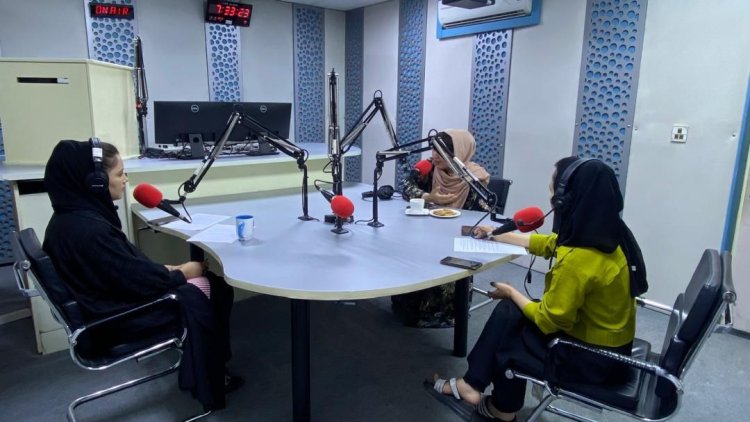World Press Freedom Day: Afghan Journalists Complain About Poor Economic Conditions

Coinciding with World Press Freedom Day on May 3, several Afghan journalists say they have lost their jobs in recent years and now face unemployment, financial hardship, and an uncertain future.
Ruhullah Sadat, a local journalist in the southern provinces who lost his job five months ago, says he has faced many economic challenges since losing his position and has not yet been able to find another job. According to him, most journalists who worked with print, radio, and visual media have become unemployed or continue working without any benefits.
Sadat added: “It’s been five months since I’ve been unemployed. I’m struggling with many problems. I have no other option but to consider opening a small shop or doing another non-professional job instead of continuing my career.”
Hamidullah Afghan, another journalist who worked with a radio station in Kabul until two months ago, says that with the recent halt in U.S. aid to Afghanistan, journalists’ salaries in many media outlets have been cut in half while workloads have increased.
He added that his salary was reduced so much that it could no longer cover basic living expenses, forcing him to leave his job.
Afghan stated: “Journalists no longer receive the same pay as before. Previously, a journalist might earn 12,000 to 15,000 afghanis, but now the salary has dropped to around 8,000 afghanis, which is not enough to meet family needs. That’s why many journalists have been forced to quit.”
He further noted that due to financial difficulties and being away from their profession, many journalists have developed mental health issues and are facing an uncertain fate.
Meanwhile, the United Nations Assistance Mission in Afghanistan (UNAMA), in a statement marking World Press Freedom Day, said that restrictions and economic challenges in Afghanistan have threatened access to information, and expressed its solidarity with the media.
UNAMA added that due to the poor economic situation, many media outlets in Afghanistan are struggling financially, and a significant number have been forced to shut down.
Another journalist, using the pseudonym Noor Ahmad, said he has submitted applications to numerous media outlets over the past year but has not received a single response.
According to him, recent restrictions by the Taliban, particularly the ban on broadcasting images of living beings, have forced many journalists to leave their jobs.
He said: “With the media restrictions, especially on visuals, the situation has worsened. Television has turned into radio, and this has led to layoffs and financial problems for many journalists.”
At the same time, Reporters Without Borders released its global press freedom ranking, placing Afghanistan at 175 out of 180 countries under Taliban rule. According to the ranking, Norway, Estonia, and the Netherlands are at the top in terms of press freedom, while Afghanistan, Iran, Syria, China, and North Korea are at the bottom.
Last year, Afghanistan was ranked 178th out of 180 countries.
Following the Taliban’s return to power in Afghanistan, unprecedented restrictions have been imposed on the media, resulting in not only workforce reductions but also severe financial challenges for media outlets.
